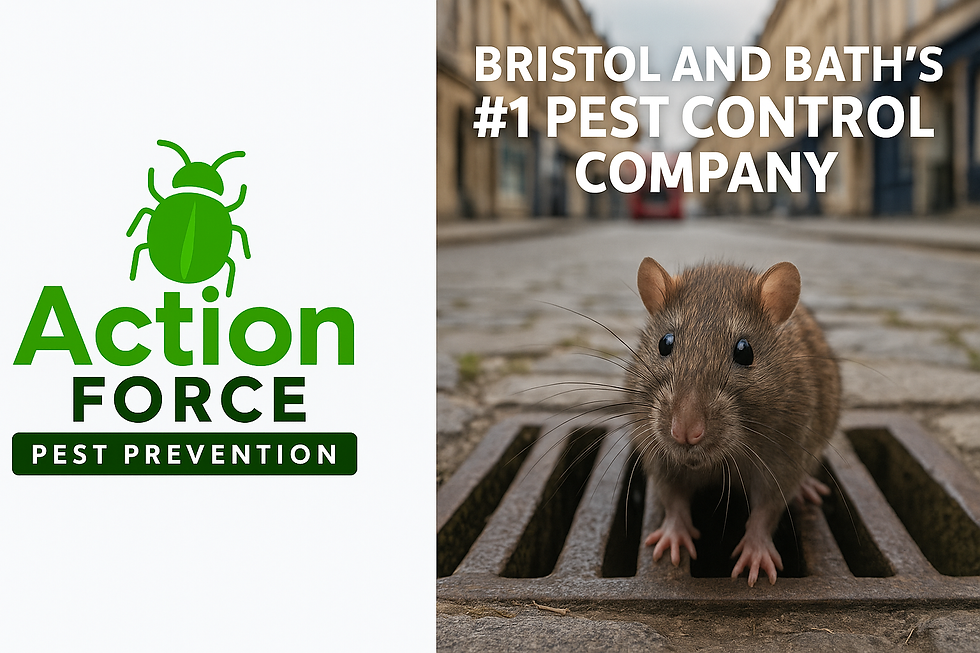DIY Pest Control vs. Professional Pest Control: Which Is the Better Choice for Your Home?
- Action Force

- Jan 2, 2025
- 3 min read
Pest infestations can wreak havoc on your home and peace of mind, making pest control a critical component of home maintenance. From ants invading your kitchen to woodworm threatening your structure, finding the right pest control approach is essential. Should you handle the issue yourself or call in the pros? Let’s break down the pros and cons of both DIY pest control and professional pest control to help you make the best choice.
I. DIY Pest Control: Taking Matters Into Your Own Hands
Do-it-yourself pest control has become increasingly popular, with homeowners relying on over-the-counter solutions, home remedies, and online tutorials. While this approach might seem straightforward, it has its unique set of advantages and drawbacks.
A. Pros of DIY Pest Control
Cost-Effectiveness DIY pest control is often more affordable upfront. Products like sprays, traps, and powders can be purchased at a fraction of the cost of professional services.
Convenience There’s no need to wait for appointments. DIY methods let you address pest issues immediately and on your schedule.
Control Over Methods You can choose the products and approaches that align with your preferences, whether you’re partial to natural remedies or prefer fast-acting chemicals.
Educational Experience Tackling pests yourself allows you to learn about the types of pests in your home and how to prevent them in the future.
Natural Solutions Many DIY enthusiasts prioritise eco-friendly options, such as diatomaceous earth, essential oils, or vinegar solutions, to reduce the use of harsh chemicals.
B. Cons of DIY Pest Control
Lack of Expertise Misidentifying pests or using the wrong treatments can lead to wasted time and money, and the problem might persist.
Temporary Results DIY methods often treat the symptoms rather than the root cause, meaning infestations can return.
Safety Concerns Improper handling of pesticides can put your family and pets at risk. Without proper training, DIYers may inadvertently misuse toxic products.
Limited Tools and Products Many highly effective solutions are only available to licensed professionals, leaving DIYers with less potent options.
Time-Consuming From researching solutions to applying treatments, DIY pest control can demand a significant investment of time and effort.
II. Professional Pest Control: Leaving It to the Experts
Professional pest control services bring industry knowledge and advanced tools to the table, offering long-term solutions to even the most stubborn infestations. However, this approach also comes with its own pros and cons.
A. Pros of Professional Pest Control
Expertise and Knowledge Licensed professionals understand pest behaviour and biology, enabling them to identify the source of infestations and apply targeted solutions.
Effective and Long-Term Solutions Professionals use specialised tools and products that often outperform DIY options. Their treatments are designed for lasting results, addressing the root of the problem.
Time-Saving Hiring a professional frees up your time. You can focus on other priorities while experts handle the pests efficiently.
Safety and Compliance Professionals are trained to apply treatments safely, ensuring compliance with regulations and reducing risks to your household.
Ongoing Prevention Many pest control companies offer follow-up services and preventative treatments to keep your home pest-free in the future.
B. Cons of Professional Pest Control
Cost Professional services can be expensive, particularly for severe infestations requiring multiple treatments.
Service Agreements Some pest control companies require contracts for ongoing services, which may not appeal to all businesses.
Temporary Disruptions Certain treatments may require you to vacate your home for a few hours or even days, depending on the severity of the infestation.
III. Which Option Is Best for You?
The choice between DIY and professional pest control depends on several factors, including the severity of the infestation, your budget, and your comfort level with handling chemicals.
When DIY Pest Control May Suffice If the infestation is minor, such as a small ant problem, and you’re confident in your ability to address it safely, DIY solutions can be a cost-effective choice.
When to Call the Professionals For large-scale infestations, recurring pest issues, or potentially hazardous pests like termites, rodents, or bed bugs, professional pest control is almost always the better option. The long-term effectiveness and peace of mind often outweigh the higher upfront cost.

Conclusion
While DIY pest control can be a practical option for minor issues, professional pest control offers expertise, safety, and long-lasting solutions that are well worth the investment for severe or recurring infestations. By evaluating your specific needs and situation, you can choose the approach that ensures a safe, pest-free home.
Have you had success with DIY pest control, or do you rely on professional services? Share your experiences in the comments below!
Our Advice: For minor issues, DIY might work. But for serious or recurring infestations, trust the pros to protect your home effectively and safely!
Contact us today for a consultation and reclaim your home from pests!
07496102103
0117 444 9821




Comments